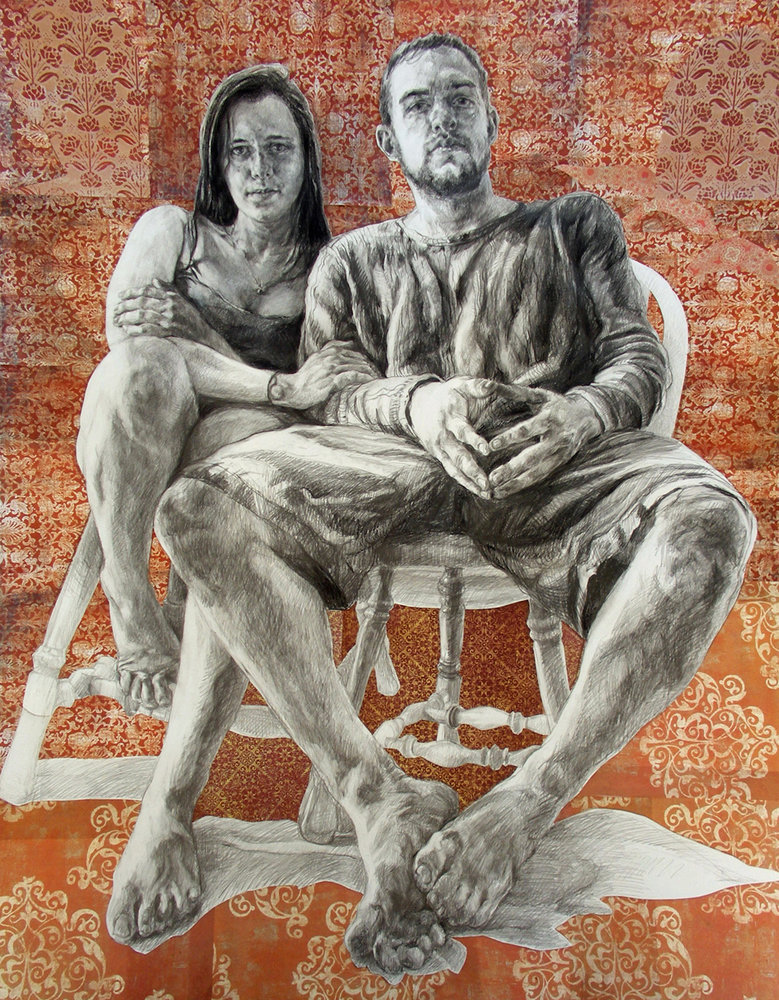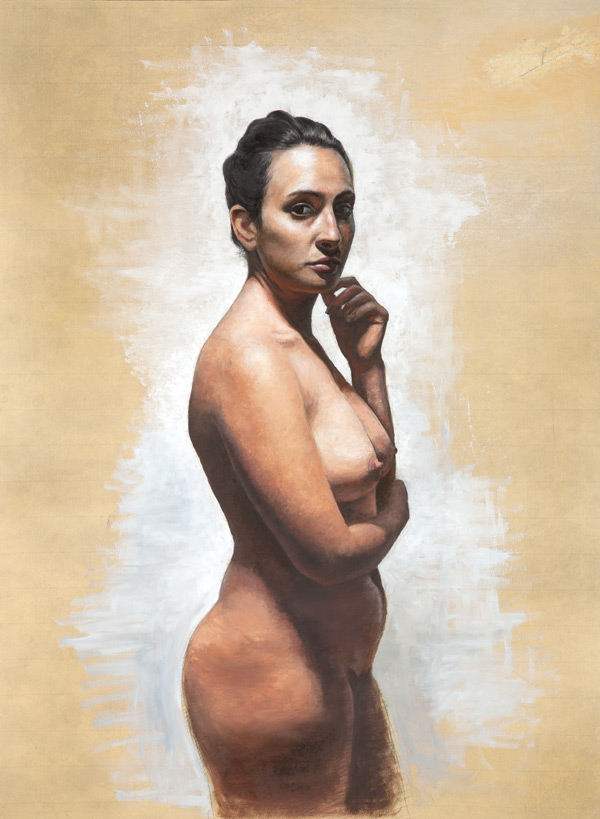How Love Inspires Us | Graphite and Collage with Patricia Schappler

Learn how love, storytelling and myth permeate these expressive mixed-media works

Patricia Schappler’s large-scale graphite and collage work has a stunning emotional quality, expressively combining pattern and line. We wanted to get to know the artist a little bit better—what she loves about art, what inspires her to create, and her unique ability to trust the art to take her into directions that surprise her. Below Schappler takes us inside her artistic process.
Who I Am
I’ve drawn since I was a child. It was a way to sensually absorb and understand the energy of my family. I have my BFA in drawing from the University of New Hampshire and my MFA in drawing and painting from Brooklyn College. I currently teach Figure Drawing at the New Hampshire Institute of Art and exhibit nationally and regionally.

The Vision
I’m from a very large family so people have always populated my environments. My images originate from this, along with a rooted interest in storytelling and myth. I frequently work from family and friends simply because they’re available, and less simply, because I love them. Perhaps I believe this love may permeate what I make, and become layered and embedded in the struggles and successes of the image-making process.
I enjoy stories, having grown up with so many. The Biblical Eden suggests the complexity of relationships that I consider; the distance between early and later love, the bridges needed to access knowledge, the conflicts yet to arise, the possibilities of forgiveness. This couples’ gestures in Eden (below) hints at this complexity. Both tense and tender, closed and open, overlapped and singular, arms and legs and bodies tipping into each other, they are an oval within a rectangular field. The image is very specifically a likeness of my son and his girlfriend. At the same moment, it is a drawing of any young couple, comparable to couples throughout time. Mixing Eastern and Western patterns set the figures in the midst of something universal. The energy, space, and red warmth of a walk into the crowded streets of elsewhere.

The Process
I use graphite and collage on Stonehenge paper, a surface I admire for its flexibility, ease of erasure, and in general, forgiving nature. Graphite, as a small inconsequential, held tool, has associations with past history, letter writing, and home. And because it is small, I also have to be very patient with it, a quality I want to extend in myself. I layer through hatching, crosshatching, and wrapping line until it’s quite dense to reflect both physical and emotional weight. The patterns and title were vague ideas gathering while I developed the figures. I treat the figures as cut outs layering them on top of the field. Each edge of the collage paper is also layered, creating slight lifts or reliefs away from the flat plane of the original paper.
Listening to the Art
Little things shift by centimeters as if the drawing knew where it had to go to create the final boundary of the couple’s layered shape. I wasn’t quite sure of the warm pattern until I had tried both cooler and more saturated possibilities. This trust between the process, the discovery of things one feels more than knows, and the resolution of question marks in the making, are always favorites of growing things.

Inspiration and Advice
I admire specific things about various artists’ work more than specific advice. Instructors Sigmund Abeles, Scott Schnepf and Lennart Anderson’s work vary but share a grace, with their slow moving, complex, deep surfaces. Other artists I have admired, including Langdon Quin, Sangrum Majumdar, Paula Rego, Balthus, Rembrandt, later Desederio, and others of course … are like listening to a heartbeat, I recognize their humanity.
I find events, exhibitions, and competitions helpful in setting goals. The advice I offer my students is to work consistently, give generously to both themselves and their process, remain open and curious, and to recognize the journey more than the thing.
To see more of Patricia Schappler’s work, visit her website at www.patriciaschappler.com





Have a technical question?
Contact UsJoin the Conversation!